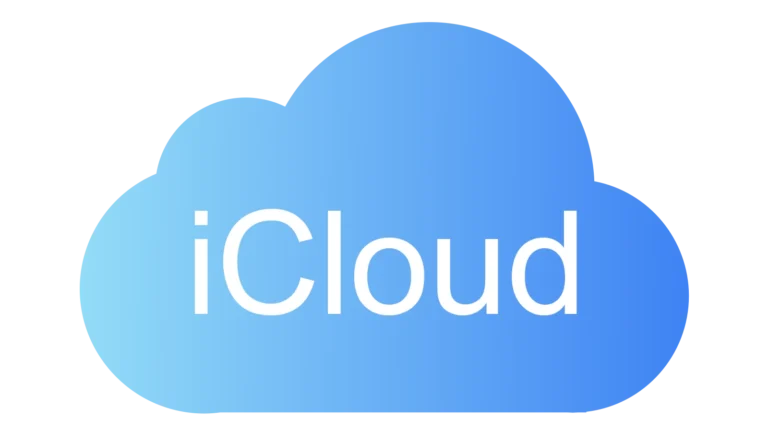
B2B marketing connects businesses with other businesses to sell products or services. Unlike consumer marketing, it targets decision-makers in companies rather than individual shoppers. Effective B2B marketing strategies focus on building long-term relationships, showcasing expertise, and demonstrating value to potential clients.
The landscape of B2B marketing is evolving rapidly. Digital channels now play a crucial role in reaching and engaging business customers. Content marketing, search engine optimization, and social media have become essential tools for B2B marketers. These methods help companies establish thought leadership and connect with prospects early in their buying journey.
Successful B2B marketing campaigns often combine multiple tactics. Account-based marketing targets specific high-value accounts with personalized messaging. Email marketing nurtures leads over time with relevant information. Video content explains complex products or services in an engaging format. The key is to choose strategies that align with your business goals and resonate with your target audience.
B2B Marketing: A Guide to Reaching Businesses
What is B2B Marketing?
B2B marketing, or business-to-business marketing, is the process through which businesses promote their products or services to other businesses. This approach differs from B2C marketing (business-to-consumer), which targets individual customers. The primary goal of B2B marketing is to build relationships with other companies and demonstrate how your product or service can help them achieve their objectives. It focuses on educating these businesses about your offerings, establishing the value they provide, and ultimately converting them into customers.

Here are some tips for B2B marketing:
- Plan: Set goals for each campaign, research your target audience, and set KPIs to measure your progress.
- Use multiple channels: B2B marketing can include online marketing, physical marketing, paid social, search marketing, editorial content, email, video, events, and more.
- Focus on demand generation: Focus on getting in front of buyers on the platforms they use.
- Prioritize trust and confidence: B2B buyers are concerned about the reliability of products and services, so emphasize brand, reputation, and case studies.
- Use LinkedIn: LinkedIn is a popular platform for B2B marketers. Create an optimized LinkedIn page and post updates frequently to stay top-of-mind.
B2B transactions are common in many industries, including manufacturing, automobiles, and service providers.

Key Components of B2B Marketing
- Identifying Your Ideal Customer: Figure out exactly which businesses would benefit most from what you offer. This helps you target your marketing efforts effectively.
- Building Relationships: B2B marketing is all about relationships. Networking, attending industry events, and engaging on social media are key to connecting with potential clients.
- Content Marketing: Create valuable content that addresses the needs and challenges of your target audience. This could include blog posts, white papers, webinars, or case studies.
- Lead Generation: Develop strategies to capture the interest of potential customers and gather their contact information. This often involves offering valuable resources like ebooks or free trials in exchange for their details.
- Sales Funnel Optimization: Guide leads through a process that nurtures their interest and ultimately converts them into paying customers.
- Analytics and Measurement: Track your marketing efforts to see what’s working and what’s not. This allows you to refine your strategies and improve your results.
Common B2B Marketing Strategies
- Content Marketing: Create valuable and informative content to attract and engage potential customers.
- Search Engine Optimization (SEO): Optimize your website and content to rank higher in search engine results, making it easier for potential customers to find you.
- Social Media Marketing: Use social media platforms like LinkedIn to connect with potential clients and share valuable content.
- Email Marketing: Nurture leads and build relationships through targeted email campaigns.
- Paid Advertising: Use online advertising platforms to reach a wider audience and drive traffic to your website.
Top B2B Marketing Companies
It’s tough to definitively rank B2B marketing websites or companies because “best” can be subjective and depend on specific needs. However, here’s a table of some of the top contenders, known for their expertise, resources, and impact in the B2B space:
| Company/Website | Specialization/Focus | Why They Stand Out |
|---|---|---|
| HubSpot | Inbound marketing, sales, and CRM software | Extensive resources, blog, and free tools; strong emphasis on content marketing and lead generation |
| Salesforce | CRM solutions, cloud-based software | Leading CRM provider; robust platform with a wide range of features for sales, service, and marketing automation |
| Google (for Business) | Advertising, analytics, and digital marketing tools | Dominant player in search and advertising; offers powerful tools for reaching and engaging B2B audiences online |
| Professional networking and content marketing | Premier platform for B2B networking and content sharing; effective for lead generation and thought leadership | |
| Neil Patel Digital | SEO, content marketing, and digital marketing agency | Neil Patel’s expertise and blog are widely respected; the agency offers a range of services to help businesses grow online |
| Content Marketing Institute (CMI) | Content marketing education and resources | Leading source for content marketing knowledge; offers training, events, and a wealth of information |
| Demand Gen Report | B2B marketing research and insights | Provides valuable data and analysis on B2B marketing trends and best practices |
| MarketingProfs | Marketing training and resources | Offers a variety of online courses, events, and articles to help marketers improve their skills |
Factors to Consider when choosing a B2B marketing website/company:
- Your specific needs: What are your marketing goals? What challenges are you facing?
- Industry expertise: Does the company have experience in your industry?
- Services offered: What specific services do they provide (e.g., content creation, SEO, paid advertising)?
- Reputation and track record: What do other businesses say about them?
- Pricing and value: Do their services fit your budget?

B2B Marketing vs. B2C Marketing
| Feature | B2B Marketing | B2C Marketing |
|---|---|---|
| Target Audience | Businesses, organizations, institutions | Individual consumers |
| Sales Cycle | Typically longer, involving multiple decision-makers | Usually shorter and more transactional |
| Marketing Focus | Building relationships, demonstrating value, providing solutions to business needs | Generating immediate interest, appealing to emotions, highlighting product benefits |
| Content Examples | White papers, case studies, webinars | Blog posts, social media updates, product demos |
B2B marketing is a complex but rewarding field. By focusing on building relationships, providing value, and demonstrating expertise, you can effectively reach and engage potential business clients.
Key Takeaways
- B2B marketing targets businesses rather than individual consumers
- Digital channels are increasingly important for reaching B2B customers
- Effective strategies combine multiple tactics tailored to business goals
Understanding B2B Marketing Fundamentals
B2B marketing focuses on selling products or services to other businesses. It differs from B2C marketing in key ways and requires a deep understanding of target audiences.
Defining B2B Marketing and Its Goals
B2B marketing promotes products or services to other companies. Its main goal is to boost revenue and sales. Other aims include:
- Improving customer experience
- Generating leads
- Building brand awareness
- Fostering long-term relationships
B2B marketing often involves complex sales cycles. It targets multiple decision-makers within an organization. Marketers use various channels like websites, email, and industry events to reach potential clients.
Successful B2B marketing educates buyers about solutions to their business problems. It provides valuable content to guide prospects through the buying process.
Comparing B2B and B2C Marketing
B2B and B2C marketing differ in several ways:
- Audience: B2B targets businesses, while B2C focuses on individual consumers
- Purchase motivation: B2B buyers make logical decisions based on ROI, while B2C consumers often buy based on emotions
- Sales cycle: B2B typically has longer sales cycles with multiple touchpoints
- Content: B2B content is more detailed and technical, while B2C content is often simpler and more visual
- Pricing: B2B often involves custom pricing, while B2C usually has fixed prices
B2B marketers must tailor their strategies to address these unique aspects of the business market.
Identifying Your Target Audience
Defining a clear target audience is crucial for B2B marketing success. Steps to identify the right audience include:
- Analyze current customers
- Research industry trends
- Create buyer personas
- Use firmographic data
Buyer personas represent ideal customers. They include details like job titles, company size, and pain points. Firmographic data covers company attributes such as industry, location, and revenue.
Understanding the target audience helps marketers craft relevant messages and choose effective channels. It also guides content creation and product development.
B2B marketers should consider the entire buying committee. This often includes various roles like end-users, technical evaluators, and financial decision-makers.
Frequently Asked Questions
B2B marketing continues to evolve rapidly. Businesses seek effective strategies to reach other companies and generate leads. Let’s address some common questions about B2B marketing approaches and frameworks.
What are effective B2B marketing strategies for 2024?
Content marketing remains crucial. Creating valuable resources like whitepapers, case studies, and industry reports helps attract potential clients.
Account-based marketing (ABM) targets specific high-value accounts. It uses personalized campaigns to engage key decision-makers within those companies.
Video marketing is growing in importance. Short, informative videos can explain complex products or services quickly and engagingly.
How can B2B marketing strategy frameworks improve lead generation?
The RACE framework (Reach, Act, Convert, Engage) provides a structured approach to digital marketing. It helps businesses plan and measure their online marketing efforts.
The STP model (Segmentation, Targeting, Positioning) aids in identifying and focusing on the most valuable customer segments. This leads to more targeted and effective lead generation campaigns.
What are some examples of successful B2B marketing campaigns?
IBM’s “Smarter Planet” campaign highlighted how their technology solutions could address global challenges. It positioned IBM as a thought leader in innovation.
Salesforce’s “Trailblazer” program built a community around their products. It offered free training and certification, turning users into brand advocates.
Can you explain the 4 C’s of B2B marketing and their significance?
The 4 C’s stand for Customer, Cost, Convenience, and Communication. They focus on the buyer’s perspective rather than the seller’s.
Customer refers to understanding and meeting client needs. Cost considers the total cost of ownership for the client. Convenience addresses how easily customers can access and use the product or service. Communication involves two-way dialogue with customers.
How do the 7 P’s apply to contemporary B2B marketing practices?
The 7 P’s are Product, Price, Place, Promotion, People, Process, and Physical Evidence. In B2B marketing, they help create a comprehensive marketing mix.
Product and Price focus on offering value to business clients. Place involves distribution channels and accessibility. Promotion covers marketing communications. People emphasizes the importance of staff in service delivery. Process ensures efficient service delivery. Physical Evidence relates to the tangible aspects of the service environment.
What is the importance of the rule of 7 in forming B2B marketing strategies?
The rule of 7 suggests that prospects need to see a message at least seven times before taking action. In B2B marketing, this underscores the need for consistent, multi-channel communication.
It guides marketers to create diverse content and use various platforms to reach potential clients. This approach helps build brand awareness and trust over time, which is particularly important in B2B relationships where purchase decisions often involve multiple stakeholders and longer sales cycles.






